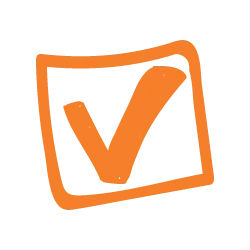If you suffer from anxiety caused by road trauma, you might struggle to get into a car or be triggered by driving past the area where the crash happened.
Importantly, this can happen to you even if you weren’t directly involved in a crash. Seeing a crash or hearing about one can trigger the same reactions. Anxiety can lead to a multitude of negative things impacting your day to day life.
How do I know I have post-crash anxiety?
Anxiety can manifest after a crash in many ways. It’s more than feeling stressed or worried – it is a perputal state of worry or stress after a stressful event has passed, such as a road crash.
Signs and symptoms may vary, but if your anxiety stops you from being able to look after yourself, work, or have relationships – or if you are avoiding certain situations, then it may be a problem.
When should you get help for anxiety?
If your anxiety symptoms are stopping you from living life as you want or need to, then you should seek help.
What does this look like in your day-to-day life?
- ongoing symptoms, more than a month after trauma
- having trouble functioning at home or work
- feeling confused, out of touch with reality or emotionally numb
- finding it hard to connect with others or knowing your relationships are suffering
- increasing avoidance, especially avoiding anything that reminds you of the road crash (changing your normal driving route and adding significant time onto trip, avoiding going anywhere by car).
- thinking about harming, either yourself and/or others.
Once you recognise your anxiety symptoms are affecting your daily life, you can make a plan to get some help.
Where can you get help for anxiety?
When it comes to getting help for anxiety after a road crash, your doctor is a good place to start. You can talk about your concerns, signs and symptoms, and also get a referral for a psychologist/counsellor, if needed.
Other options include Road Trauma Support WA, your work employee assistance program, support groups, and family and friends.
What treatments are available?
There are many effective treatments for anxiety. Remember, everyone is different and what works for one person may not work for another. It’s important to get professional advice if you’re not sure.
Treatment options include medication, mindfulness, exercise, psychological therapies, relaxation techniques, and self-talk.
It might be tempting to continually avoid situations which make you feel anxious or to use alcohol, caffeine, or other drugs to ease anxiety symptoms. These approaches can lead to other problems, so it’s best to talk to your doctor to find the best treatment for you.

- Medication
- Mindfulness
- Exercise
- Psychological therapies
- Relaxation techniques
- Self-talk

- Avoidance of people, places, and situations
- Use of alcohol, caffeine, or other drugs
Need more information or support?
At Road Trauma Support WA, we provide free information, support, and counselling to anyone who has been affected by a road crash in Western Australia.
We support those who have been involved in and/or injured in a road crash, their families, friends, and carers, those who have witnessed a crash or are first on the scene, first responders and those who may have caused a road crash to occur.
For more information or to book an appointment
Find out more about our services or download free support resources below.
To book a free appointment, call us on (08) 6166 7688 or 1300 004 814 (free call) or email admin@rtswa.org.au.
